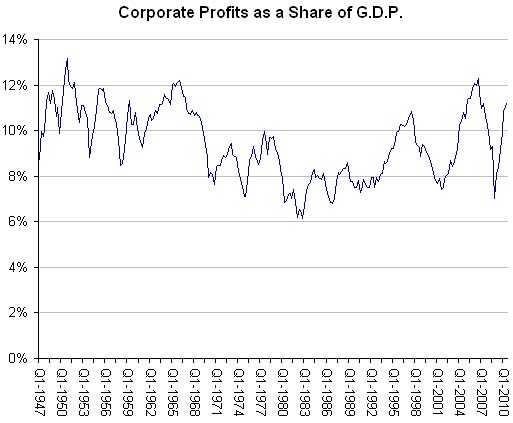clifp
Give me a museum and I'll fill it. (Picasso) Give me a forum ...
- Joined
- Oct 27, 2006
- Messages
- 7,733
I found this Atlantic article showing the huge rise in health care cost as largely crowded out wage gains to be very interesting. Basically it shows that the total cost for employers to hire somebody has remained pretty constant since WWII but benefits have risen dramatically leaving less room to increase wages.

Corporate profits aren't really the culprit.

Now it is certainly the case that top have garnered an increasingly large share of the pie, but better health care has hurt wage growth.

Corporate profits aren't really the culprit.

Now it is certainly the case that top have garnered an increasingly large share of the pie, but better health care has hurt wage growth.

